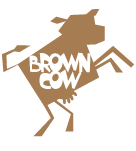Your website is probably the most important aspect of your business’ marketing strategy… it is vital. Though, there is a dangerous mentality that gets applied to having a website: Set it and forget it. Bad idea. In this week’s edition of Manic Marketing Monday, I’ll give you a few tips on how to keep your WordPress website secure.
The WordPress engine has become extremely popular. I won’t give you all of the boring details of how quickly it has become the biggest platform for building websites and who and how many businesses are using it (you can just go here and check it out), but I switched to building WP site exclusively a couple of years ago. It is a very solid and dependable platform, allows the user/client to make simple changes to creating new pages, etc, and it has plugins. The base of plugins has at least doubled in the last 2 years… you can find a plugin to do just about anything you might need. Its great, I enjoy working with it.
But with an increase in popularity, comes an increase in hackers. Brown Cow offers a budget hosting that is optimized for WP, and I have a good number of hosting clients. Back in February of 2015 my account was affected by a bulk attack on the majority of my hosted sites… ugh! Malware had attacked sites and was causing a major headache… mainly for me! Since then, I have tried to take a aggressive approach to keep hackers at bay. Here are the simple things that you can do to protect your site:
- Download iThemes Security, a plugin for WP. This security feature will walk you through steps to tighten the security of your site. Install, activate, and then follow the high & medium priority steps.
- Download Wordfence. This is an anti-virus plugin that will scan your site for malicious files. You can keep your site clean and from being blacklisted.
- Keep your WP up-to-date. It’s pretty simple: when WP releases an update – apply it.
- Keep your themes up-to-date. If you purchased your WP theme from ThemeForest.net, you can download the Envato Toolkit plugin that will sync to your account so that you can update your themes easier.
- Keep your plugins up-to-date.
- Lastly, seriously consider a backup plugin. If your site is backed up on a daily basis, a hack is much lesser of a concern.
Trust me, once you have to deal with cleaning your website after a hack… you’ll wish you had followed these simple steps. So, no excuses… go and make your site more secure. You can’t put a price on protecting your most effective marketing tool!
scottJ
owner/artist Brown Cow Design








